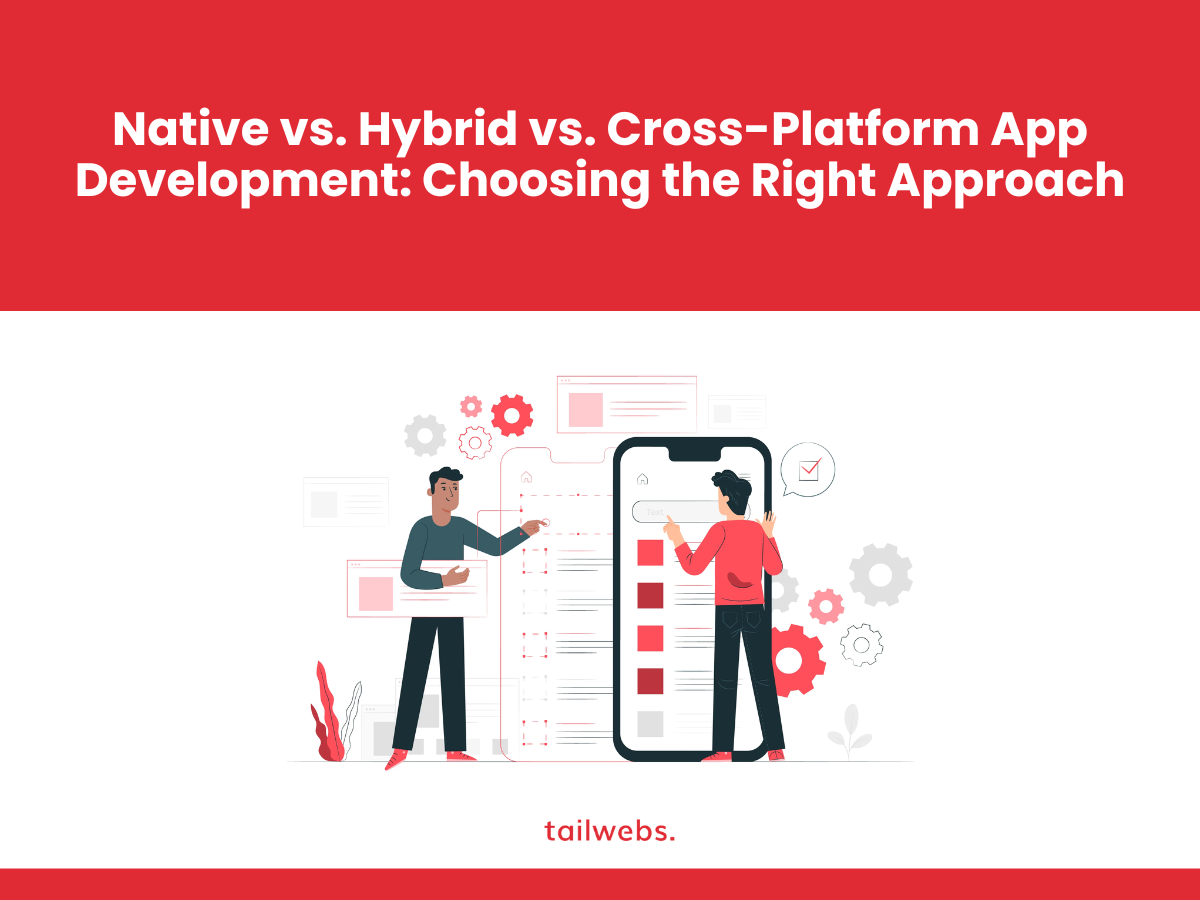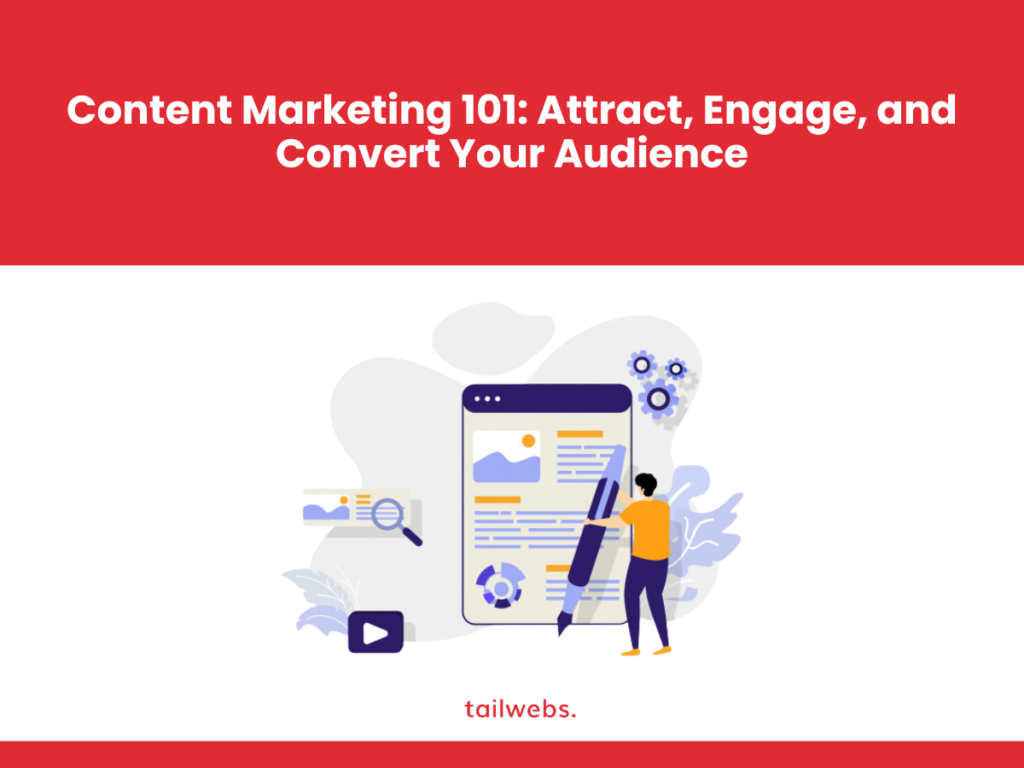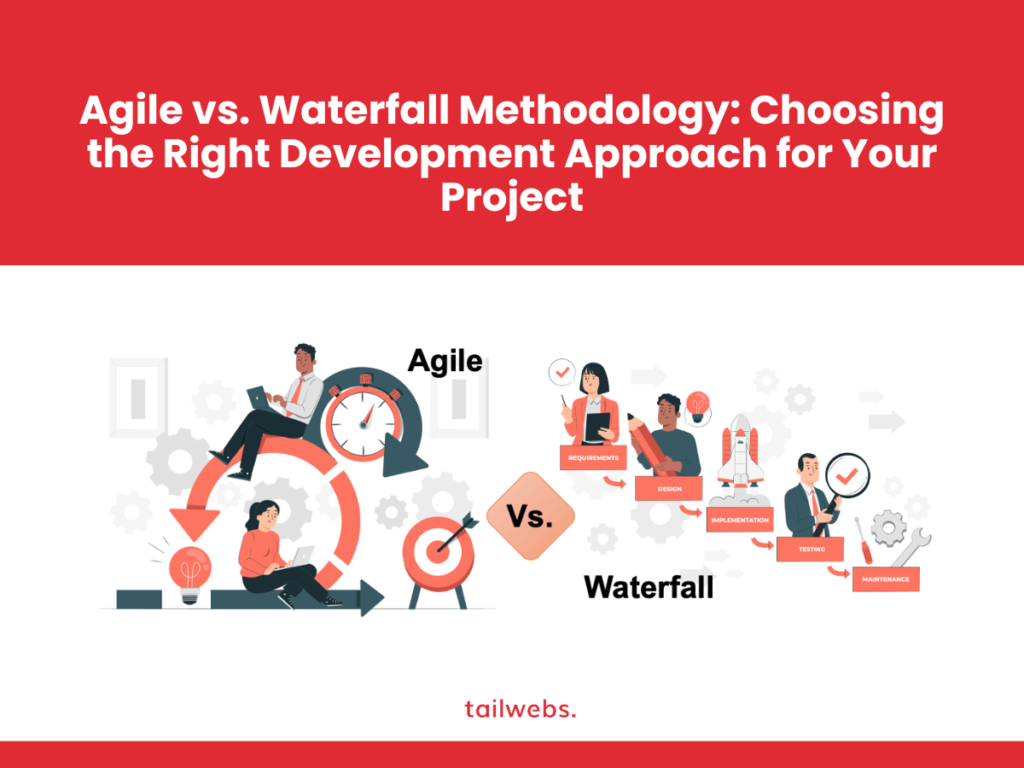In today’s mobile-driven world, crafting a captivating app can propel your business to new heights. But with a plethora of app development options available, selecting the right approach can be daunting. This comprehensive guide dives into the three main categories – native, hybrid, and cross-platform app development – empowering you to make an informed decision for your next mobile project.
Native App Development: Building Apps for Peak Performance
Native apps reign supreme in terms of performance, user experience, and access to device-specific features. They are developed using programming languages specific to each mobile operating system:
Android:
Native Android apps are built using Java or Kotlin and leverage the Android Studio development environment.
iOS:
For iOS app development, Swift is the preferred programming language, utilizing Apple’s Xcode IDE.
Advantages of Native Apps
Unmatched Performance:
Native apps deliver superior performance, speed, and responsiveness, as they are optimized for the specific operating system and hardware they run on.
Seamless User Experience:
Native apps integrate seamlessly with the device’s features and functionalities, like GPS, camera, and offline functionality, offering an intuitive and familiar user experience.
Direct Hardware Access:
Native apps have unfettered access to a device’s hardware capabilities, enabling features like fingerprint authentication, high-resolution graphics, and complex animations.
Disadvantages of Native Apps
Higher Development Costs:
Developing separate native apps for Android and iOS requires a larger investment in time, resources, and potentially, two separate development teams with expertise in each platform’s specific languages and tools.
Maintenance Challenges:
Maintaining two separate codebases for Android and iOS apps can be time-consuming and resource-intensive, especially when addressing bug fixes or adding new features.
Limited Reach:
You essentially create two separate apps, reaching only users on specific platforms (Android or iOS).
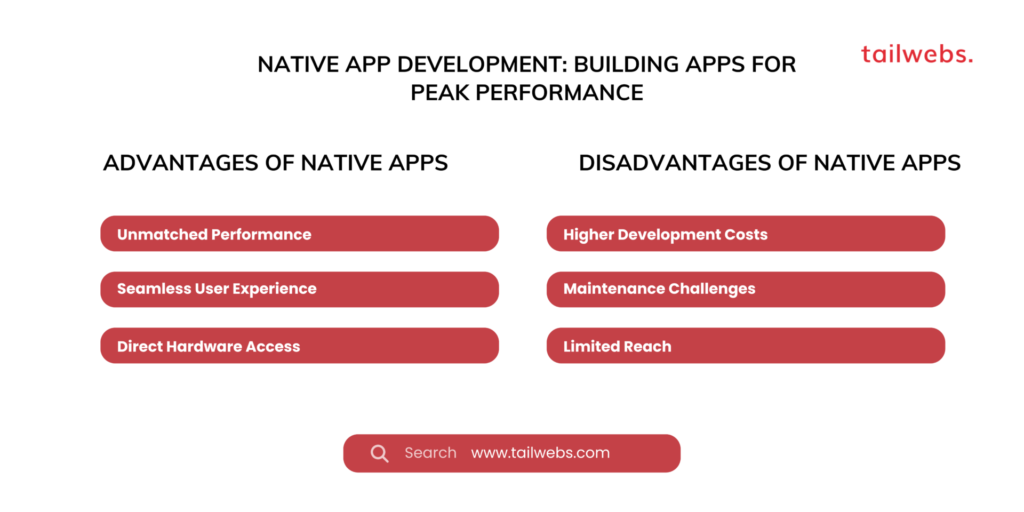
Hybrid App Development: A Bridge Between Native and Web
Hybrid apps bridge the gap between native and web development. They are essentially web apps wrapped in a native container, allowing them to be accessed through app stores like Google Play and the App Store.
Development Process:
Hybrid apps are typically built using web technologies like HTML, CSS, and JavaScript, often with the help of frameworks like React Native or Flutter.
Advantages of Hybrid Apps
Cost-Effectiveness:
Hybrid app development is generally less expensive than developing separate native apps. You can leverage a single codebase for both Android and iOS, reducing development time and resources.
Faster Time to Market:
The streamlined development process allows for quicker development and deployment compared to native app development.
Cross-Platform Compatibility:
With a single codebase, hybrid apps can reach a wider audience by functioning on both Android and iOS devices.
Disadvantages of Hybrid Apps
Performance Limitations:
Hybrid apps may not deliver the same level of performance and responsiveness as native apps, especially for complex functionalities or graphics-intensive tasks.
Limited Device Access:
Hybrid apps might have restricted access to certain device features compared to native apps, potentially hindering user experience.
Potential Compatibility Issues:
Reliance on web technologies can lead to compatibility issues across different devices and operating system versions.
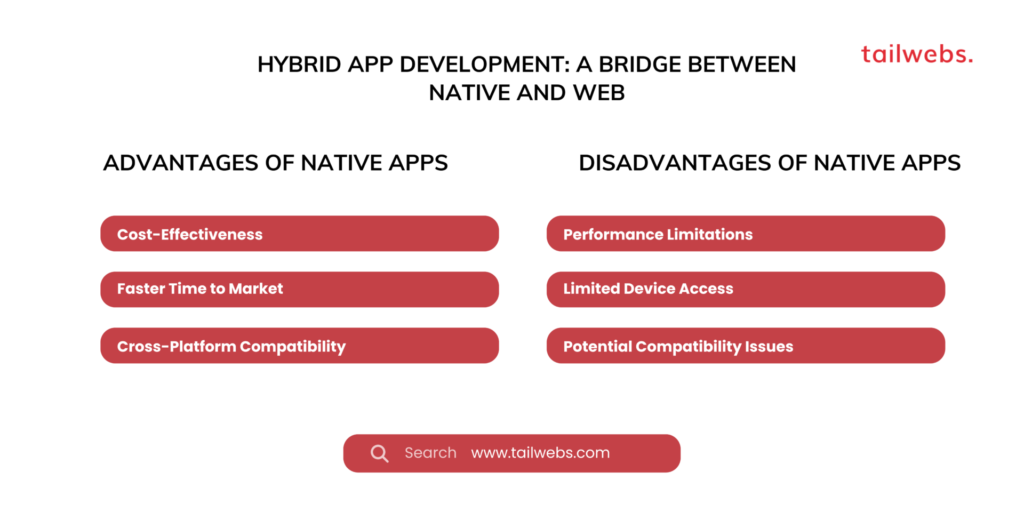
Cross-Platform App Development: Building Once, Deploying Everywhere
Cross-platform app development offers another approach to reach users across multiple platforms. Unlike hybrid apps, they are built using programming languages like C# or JavaScript that are then compiled into native code for each target platform.
Development Process:
Popular cross-platform frameworks like Xamarin, React Native, and Flutter enable developers to write code once and deploy it to various platforms.
Advantages of Cross-Platform Apps
Reduced Development Costs:
Cross-platform development offers significant cost savings compared to native app development by utilizing a single codebase for multiple platforms.
Faster Development Time:
The ability to write code once and deploy across platforms streamlines the development process, potentially leading to faster time to market.
Wider Market Reach:
Cross-platform apps can reach a broad audience across various operating systems, maximizing your app’s potential user base.
Disadvantages of Cross-Platform Apps
Potential Performance Issues:
While performance has improved considerably, cross-platform apps may not always match the peak performance of native apps, particularly for resource-intensive applications.
Limited Access to Native Features:
Similar to hybrid apps, cross-platform apps might have limitations in accessing certain device-specific functionalities.
Larger App Size:
The compiled code for each platform can increase the overall app size compared to native apps.
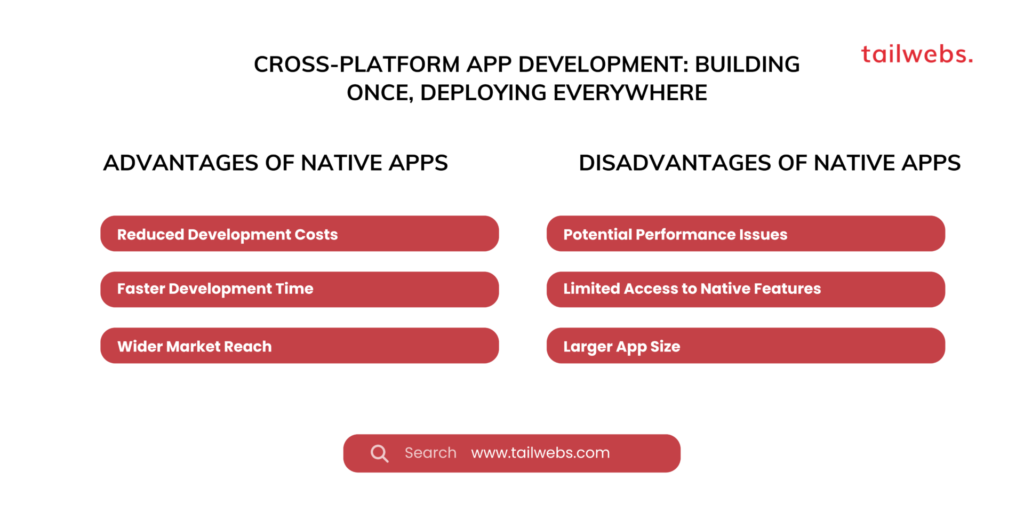
Choosing the Right Approach: A Project-Centric Decision
The optimal app development approach hinges on several factors specific to your project and business goals. Here’s a framework to guide your decision-making process:
App Complexity:
For complex apps requiring high performance, extensive device functionality, or exceptional user experience – native development reigns supreme.
Budget and Resources:
If budget and resource constraints are a concern, hybrid or cross-platform development offers a more cost-effective solution.
Target Audience:
Consider your target market’s platform dominance. If you need to reach a specific user base on a particular platform (Android or iOS), native development might be preferable. However, if you aim for a broader audience across platforms, cross-platform development offers wider reach.
Time to Market:
If a rapid launch is crucial, hybrid or cross-platform development can expedite the process compared to building separate native apps.
Project Requirements:
Carefully evaluate your app’s core functionalities and feature requirements. If seamless device integration and access to advanced features are paramount, native development is the way to go. However, if basic functionalities and a broader reach are priorities, hybrid or cross-platform options can be suitable.
Beyond the Core Three: A Look at Emerging Trends
The mobile app development landscape is constantly evolving. Here are some recent trends to consider:
Progressive Web Apps (PWAs):
PWAs bridge the gap between web and native apps. They offer app-like functionality through a web browser, providing an installable experience with features like offline access and push notifications.
Low-Code/No-Code App Development Platforms:
These platforms enable users with minimal coding experience to create basic mobile apps using drag-and-drop interfaces and pre-built components.
Understanding these trends can empower you to explore innovative approaches that align with your project’s specific needs.
The Final Verdict: Choosing the Optimal Path
Ultimately, the decision between native, hybrid, and cross-platform app development doesn’t have a one-size-fits-all answer. By meticulously evaluating your project requirements, target audience, budget, and desired time to market, you can select the approach that best aligns with your business goals.pen_spark

